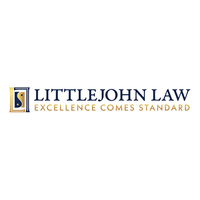Explore web search results related to this domain and discover relevant information.
Understand what you need to do to file an estate income tax return and how to get an Employee Identification Number.
A lock () or https:// means you've safely connected to the .gov website. Share sensitive information only on official, secure websites. ... INFORMATION FOR... ... An estate administrator must file the final tax return for a deceased person separate from their estate income tax return.Income tax on income generated by assets of the estate of the deceased. If the estate generates more than $600 in annual gross income, you are required to file Form 1041, U.S. Income Tax Return for Estates and Trusts. An estate may also need to pay quarterly estimated taxes.See Form 1041 instructions for information on when to file quarterly estimated taxes. When someone dies, their assets become property of their estate. Any income the assets generate become part of the estate and may require you to file an estate income tax return.A deceased person's estate figures its gross income in much the same manner as an individual. See the definition of adjusted gross income. Most deductions and credits allowed to individuals are also allowed to estates and trusts.

If you already have the right or have probate (as an executor or administrator) you can start dealing with the estate. You may need to apply for the right to deal with the estate of the person who's died (also called 'probate').
As a personal representative (an executor or administrator) you’re legally responsible for the money, property and possessions of the person who died (the ‘estate’s assets’). You’re responsible for the assets from the date of death until the date everything has been passed on to the beneficiaries.You may have to apply for probate before you can deal with some assets. ... pay Income Tax on things like rental income from property, profits from a business or interest from investments · pay Capital Gains Tax on profits from selling shares, investments or property · report the estate value, income and tax liability to HM Revenue and CustomsYou should consider this if the estate has a lot of assets or includes things like trusts. You may be able to get free tax advice if you’re on a low income.Value the estate and pay Inheritance Tax if it's due · You might need to apply for probate before you can deal with the property, money and possessions (the ‘estate’) of the person who died.

Estate administration is the process by which an individual’s lifetime financial affairs are wound up, and their property and assets are distributed after they die. This process differs from state to state.
ACTEC Fellows Carole M. Bass and Ray Prather answer many people’s questions surrounding estate administration, including what is involved in estate administration, how long it will take, and what happens if there is no will. Carole M. Bass ... Hi, I’m Carole Bass, an ACTEC Fellow from New York City, and I’m joined today by Ray Prather an ACTEC Fellow from Chicago, Illinois.Estate administration is the process of winding up a person’s financial dealings after they die and then distributing that person’s property to the people that inherit it. Obviously, that’s a lot to cover for just one video, so I would encourage everyone to take a look at ACTEC’s video library and the topics we touch on the day for more information.Sure, so that the first steps to take in an estate administration really involves collecting information, particularly asset information, and finding out what the decedent owned and how it was titled; finding out if there was a will or not; obtaining death certificates, typically from the funeral director; notifying Social Security if the decedent was receiving benefits; and getting in touch with an attorney who could help walk you through the process.That would be property that’s titled as joint tenants with right of survivorship, life insurance policies and retirement plans, and other assets that have a beneficiary designation and pass according to forms you filed with a plan administrator, a life insurance company or bank, and also property that’s held in, for instance, a revocable trust for a living trust. Those would all pass outside of probate. But Ray, how do you probate assets get administered? Sure, so everything was passing through the will uses the probate process, and basically, the estate appointing an executor or administrator the authority to manage and distribute the assets.
However, in the financial and legal sense of the term, an estate refers to everything of value that an individual owns—real estate, art collections, antique items, investments, insurance, and any other assets and entitlements—and is also used as an overarching way to refer to a person's ...
David is comprehensively experienced in many facets of financial and legal research and publishing. As an Investopedia fact checker since 2020, he has validated over 1,100 articles on a wide range of financial and investment topics. ... Wills vs. Trusts · Will vs. Trust: What's the Difference? Estate Planning: Living Trusts vs.However, in the financial and legal sense of the term, an estate refers to everything of value that an individual owns—real estate, art collections, antique items, investments, insurance, and any other assets and entitlements—and is also used as an overarching way to refer to a person's net worth.The value of a personal estate is of particular relevance in two cases: if the individual declares bankruptcy and if the individual dies. When an individual debtor declares bankruptcy, their estate is assessed to determine which of their debts they can be reasonably expected to pay.Estate planning is the act of managing the division and inheritance of your personal estate and arguably represents the most important financial planning of an individual's life. It's important to keep in mind that every country has specific rules about passing on wealth, the allowed amounts, and the approved estate planning trusts.
:max_bytes(150000):strip_icc()/GettyImages-175427818-430ab4815fd94b2d925edcc40dfaacdd.jpg)
Trusts and estates are the two main legal structures for transferring assets to your heirs and beneficiaries. Each works in critically different ways. Estates make a one-time transfer of your assets after death. Trusts, meanwhile, allow you to create an ongoing transfer of assets both before ...
Trusts and estates are the two main legal structures for transferring assets to your heirs and beneficiaries. Each works in critically different ways. Estates make a one-time transfer of your assets after death. Trusts, meanwhile, allow you to create an ongoing transfer of assets both before and after death.Nor does it include anything that you have transferred or otherwise assigned by the time you die. Your heirs include anyone who receives money, belongings or other assets from the estate. For example, if you pass before your spouse, the house you and your spouse own together doesn’t become part of an estate; it would belong solely to your spouse.An estate is also temporary. It exists to make a one-time distribution of the assets of the deceased. Once those assets have been disposed of, the estate no longer exists. This does not mean, however, that an estate is necessarily short-lived.If the decedent (a legal term for a person who died) has a valid will at the time of death, the estate is distributed under those terms. When someone dies without a will, this is known as dying intestate. In this case, their assets will be distributed according to state law.

The federal estate tax is a tax on your assets after you die. Most estates aren't taxable unless the assets exceed $13.99 million in 2025 or $15 million in 2026.
Prior to becoming an editor and content strategist, she covered small business and taxes at NerdWallet. She has a degree in finance, as well as a master's degree in journalism and an MBA. Previously, she was a financial analyst and director of finance at public and private companies. Tina's work has appeared in a variety of local and national media outlets. ... The federal estate tax — also sometimes known as the "death tax" — is levied on a deceased person's assets.Internal Revenue Service. Frequently Asked Questions on Estate Taxes. Accessed Jul 3, 2025. ... . In other words, the tax is calculated based on what the assets are worth today, not the original value at the time of purchase.The main difference between inheritance tax and estate tax is who pays. Inheritance taxes are paid by heirs or inheritors generally upon receiving the inherited assets. An estate tax, on the other hand, is a tax levied on the entire taxable estate itself. Executors of the estate use Form 706 to figure the amount owedFive states have an inheritance tax, and one collects both estate and inheritance taxes. Inheritance tax rates often depend on the heir’s relationship to the deceased. A surviving spouse is usually exempt from state inheritance tax. Some states tax a deceased person's children, but at a low rate.

Whenever a person dies, their estate needs to be collected, managed, and distributed. FindLaw discusses how that's done through estate administration.
We make every effort to keep our articles updated. For information regarding a specific legal issue affecting you, please contact an attorney in your area. Estate administration involves gathering the assets of the estate, paying the decedent’s debts, filing tax returns, and distributing the remaining assets to beneficiaries.Estate administration involves a variety of tasks. These include: ... Some tasks are similar across state lines. But probate law varies according to state law, too. Additionally, the estate administration process can vary widely.If the decedent owned real estate in another state, an ancillary probate proceeding may be necessary. The ancillary proceeding handles only the assets located in that state. An estate attorney can guide you in determining whether you need to probate in multiple states.How a personal representative administers an estate depends on several factors. These include: ... These are a few factors that could determine the process used to administer the estate.

Many of our international guests have asked us what an ‘estate’ is? Is it a ranch or a resort? The word ‘estate ‘derives from the Latin ‘stare’ which means to stand. From ‘stare’ we also get the word status. From this derivation three distinct but related meanings of the word ...
Many of our international guests have asked us what an ‘estate’ is? Is it a ranch or a resort? The word ‘estate ‘derives from the Latin ‘stare’ which means to stand. From ‘stare’ we also get the word status. From this derivation three distinct but related meanings of the word estate have come about in […]Estate can mean the remainder of an individual’s possessions both in terms of land and other assets after their death, or it can refer to a large body of land possessed by a single person. It has also come to mean a group of housing and other buildings built together as a single entity.Estates such as Balnagown come from the concept of a large body of land owned by a single person. Historically that person would be or belong to a family of high status. These estates were synonymous with the word ‘country’, located as they were outside of urban environs in rural areas.The British country estate was, however, much more than a residence. The term was understood to comprise of not just a residence but one of some note in terms of style or size, and possess over a certain acreage. A significant amount of this land would be turned over to agricultural use.
Experts in estate planning explain how inheritance and estate settlement work and what to know if you have been identified as a beneficiary in a will or trust.
What happens to a person’s assets after they pass away? What if a person dies without a will? ACTEC Fellows Jean Gordon Carter and Kerri L.S. Mast answer these questions, explain how inheritance and estate settlement work, and what to keep in mind when you have been identified as a beneficiary in a will or trust.I’m Jean Carter an ACTEC Fellow from Raleigh, North Carolina, and I have with me Kerri Mast, an ACTEC Fellow from Charlotte, North Carolina. Our topic today is estate settlement or “dad just died – when do I get my money?” Kerri, let’s start at the beginning.There may be other matters to resolve as well, such as who gets custody of their minor children. What are the steps in the estate administration process?Kerri Mast: There are a number of steps involved with estate administration. First, someone has to be appointed as executor. That’s the person who can represent the estate and who can take action and make decisions with respect to the estate. The executor is in charge of taking inventory of all the assets; figuring out what the person owned when they died.


Most of us consider the word “estate” to mean, in essence, all of the property owned by a person at the time of their death. This is accurate, but the word takes on some important nuances after a person dies and you are the executor, an heir or beneficiary, or even a creditor.
We have talked a lot about this distinction, and here is the one-paragraph version: Probate property is property that is titled only in the deceased person’s name, such as real estate with no rights of survivorship, bank accounts that are not jointly held, vehicles that are not set up to transfer-on-death, and investment accounts that are only in the decedent’s name.The transfer of these assets to the heirs (with or without a will) must be approved by the probate court. Non-probate property is property that transfers to another person almost automatically upon the decedent’s death, such as real estate in survivorship, joint bank accounts, annuities with a designated beneficiary, and life insurance policies.The probate court has nothing to do with the transfer of these assets. Therefore, when we say that a person’s “estate” has to go through probate, their estate includes only their probate assets; not their non-probate assets.If a person dies leaving a will with a clause like the one above, then the debts must be paid from the probate assets. If you are, for example, a joint bank account holder with the deceased, or a beneficiary of a life insurance policy or annuity, you do not need to pay these debts yourself. In this situation, “estate” again means only probate assets.
A life insurance policy, annuity contract, or individual retirement account payable to a beneficiary may not be a probate asset. Real estate titled in the sole name of the decedent, or the decedent’s name and another person as tenants in common, is a probate asset (unless it is homestead ...
A life insurance policy, annuity contract, or individual retirement account payable to a beneficiary may not be a probate asset. Real estate titled in the sole name of the decedent, or the decedent’s name and another person as tenants in common, is a probate asset (unless it is homestead property).Real estate titled in the name of the decedent and one or more other persons as joint tenants with rights of survivorship is not a probate asset. Also, property owned by spouses as tenants by the entirety is not a probate asset on the death of the first spouse to die but goes automatically to the surviving spouse.Probate may also be necessary to wind up the decedent’s financial affairs. Administration of the decedent’s estate ensures that the decedent’s creditors are paid if certain procedures are correctly followed.If the decedent died intestate, a couple of examples of how the decedent’s probate assets will be distributed to the decedent’s heirs are as follows: (found in Part I, Chapter 732 of Florida Statutes): Suppose the decedent was survived by a spouse but left no living descendants. In that case, the surviving spouse receives all of the decedent’s probate estate.

Share sensitive information only on official, secure websites. ... INFORMATION FOR... ... The Estate Tax is a tax on your right to transfer property at your death. It consists of an accounting of everything you own or have certain interests in at the date of death (Refer to Form 706 PDF).
A lock () or https:// means you've safely connected to the .gov website. Share sensitive information only on official, secure websites. ... INFORMATION FOR... ... The Estate Tax is a tax on your right to transfer property at your death. It consists of an accounting of everything you own or have certain interests in at the date of death (Refer to Form 706 PDF).The fair market value of these items is used, not necessarily what you paid for them or what their values were when you acquired them. The total of all of these items is your "Gross Estate." The includible property may consist of cash and securities, real estate, insurance, trusts, annuities, business interests and other assets.Once you have accounted for the Gross Estate, certain deductions (and in special circumstances, reductions to value) are allowed in arriving at your "Taxable Estate." These deductions may include mortgages and other debts, estate administration expenses, property that passes to surviving spouses and qualified charities.The value of some operating business interests or farms may be reduced for estates that qualify. After the net amount is computed, the value of lifetime taxable gifts (beginning with gifts made in 1977) is added to this number and the tax is computed.

So, anyone who owns anything has an estate – even if it’s not a mansion on a sprawling stretch of land. Individuals with a modest estate might only have personal effects, furniture, and perhaps a car. But even if the total assessed value of these items is relatively low, it is still considered ...
So, anyone who owns anything has an estate – even if it’s not a mansion on a sprawling stretch of land. Individuals with a modest estate might only have personal effects, furniture, and perhaps a car. But even if the total assessed value of these items is relatively low, it is still considered their estate.The term estate may also be used to describe an individual’s net worth. Fundamentally, an estate is the total of a person’s assets, less any liabilities or debts. The value of a personal estate may become relevant if an individual declares bankruptcy. In these instances, the estate is assessed to determine which debts can be paid.Aside from bankruptcy, the value of an estate is often determined upon the individual’s death, which is why estate planning is crucial. Upon death, the assets encompassed within an estate must be distributed to beneficiaries or heirs.Without an estate plan, a probate court will handle the transfer of assets, which can be difficult, expensive, and emotionally exhausting for the decedent’s loved ones. The state of California allows some estates to go through a simplified probate process for estates valued at less than $150,000 (adjusted every year for inflation).
What is estate settlement? How long does the process take? Who is in charge? We answer these questions and more in our comprehensive guide.
Young or old, huge estate or just starting out, recently out of college or planning to retire soon...if you have regular income, any sort of savings, a home, a partner or any dependents, you should have an Estate Plan. But many people think comprehensive plans are just too complicated, and they’re intimidated by all the moving pieces.Understanding the process of settling an estate can help you really wrap your mind around all the different components of a comprehensive Estate Plan. So read on, as we cover everything you need to know about what happens after an estate owner passes.The estate settlement process can be long, and it’s often confusing for those going through it for the first time. But when you have a solid checklist, with a timeline that details what to expect and when to expect it, you may find it's actually not as complicated as you first thought.Especially if you’ve been named Executor, you need to understand the estate settling process so you can ensure that an estate is settled properly and timely and that all heirs receive their share of the estate as intended.
When a person dies, a probate proceeding may be opened. Depending on state law, probate will generally open 30 to 90 days after the date of death. One of the probate court's first actions is to appoint an estate administrator.
Contact the IRS to file a proof of claim. The probate court will issue Letters of Testamentary or a similar document, authorizing you, the estate administrator, to act on behalf of the deceased.You'll need Letters of Testamentary to handle their tax and other matters. The tax return for the deceased and their estate are separate.You're required to file a return for the year of death, and for any preceding years for which a return was not filed, if their income for those years was above the filing requirement. For help, see the file the final tax returns. File income tax returns for the estate on Form 1041.You'll need to get a tax identification number for the estate called an employer identification number (EIN). An estate is required to file an income tax return if assets of the estate generate more than $600 in annual income. For example, if the deceased had interest, dividend or rental income when alive, then after death that income becomes income of the estate that you need to include on an estate income tax return.

The title refers to summer, and the lyrics describe a love lost during summer and the bitter memories that come with the season ever since. The song was originally titled (and the lyric sung) "Odio l'estate" ("I Hate the Summer"). Two sets of English-language...
Estate is an Italian song written in 1960 by Bruno Martino (music) and Bruno Brighetti (lyrics). A minor hit in Italy when released, it eventually became a worldwide jazz standard largely through its interpretation by João Gilberto. The title refers to summer, and the lyrics describe a love lost during summer and the bitter memories that come with the season ever since.This is the raw source file and needs to be edited, verified, and reformatted. See: Editing a JazzSkool Page for instructions. Visit Raw Pages for more that need doing! Estate is an Italian song written in 1960 by Bruno Martino (music) and Bruno Brighetti (lyrics).Two sets of English-language lyrics have been written, one titled "Estate" by Joel E.
Most of us consider the word “estate” to mean, in essence, all of the property owned by a person at the time of their death. This is accurate, but the word takes on some important nuances after a person dies and you are the executor, an heir or beneficiary, or even a creditor.
We have talked a lot about this distinction, and here is the one-paragraph version: Probate property is property that is titled only in the deceased person’s name, such as real estate with no rights of survivorship, bank accounts that are not jointly held, vehicles that are not set up to transfer-on-death, and investment accounts that are only in the decedent’s name.The transfer of these assets to the heirs (with or without a will) must be approved by the probate court. Non-probate property is property that transfers to another person almost automatically upon the decedent’s death, such as real estate in survivorship, joint bank accounts, annuities with a designated beneficiary, and life insurance policies.The probate court has nothing to do with the transfer of these assets. Therefore, when we say that a person’s “estate” has to go through probate, their estate includes only their probate assets; not their non-probate assets.If a person dies leaving a will with a clause like the one above, then the debts must be paid from the probate assets. If you are, for example, a joint bank account holder with the deceased, or a beneficiary of a life insurance policy or annuity, you do not need to pay these debts yourself. In this situation, “estate” again means only probate assets.

The meaning of ESTATE is state, condition. How to use estate in a sentence.
To save this word, you'll need to log in. ... specifically : one of the great classes (such as the nobility, the clergy, and the commons) formerly vested with distinct political powers ... Noun His estate is worth millions of dollars. He inherited the estate from his parents.Nglish: Translation of estate for Spanish Speakers Last Updated: 6 Sep 2025 - Updated example sentences ... Subscribe to America's largest dictionary and get thousands more definitions and advanced search—ad free!Adjective For distilleries making both estate and non-estate whiskey, proper segregation of grains and distillate need to be assured. —Don Tse, Forbes.com, 22 Aug.the grounds of the estate ... Examples are automatically compiled from online sources to show current usage. Read More Opinions expressed in the examples do not represent those of Merriam-Webster or its editors.

An estate sale, also referred to as a tag sale, is a method of liquidating the belongings of a family or estate. Here's how it works.
While “estate sale” might sound like a phrase used in high society, it’s simply a large, organized sale of someone’s possessions, typically held after they’ve passed away or moved. Unlike your typical garage or yard sale, an estate sale is far more extensive, often covering the entire contents of a household. This might be necessary to pay off the deceased’s debts or to distribute their assets among their heirs.An estate sale can include just about any items that the estate owns. This might vary from everyday household items like furniture, kitchen appliances and clothing to more valuable items like antiques, jewelry, art and vehicles. Essentially, anything that the individual owned and left behind can be included in an estate sale.Bankruptcy: Assets may need to be sold off to pay creditors. Despite both involving the sale of used goods, estate sales and garage sales differ greatly in scope, purpose and organization.The overall objective of the sale is also different: Estate sales are usually held to liquidate a large portion of one’s belongings.In contrast, garage and yard sales are typically held to declutter and make some extra cash.
Estate planning can be a neglected part of financial planning. It's easy to delay answering uncomfortable questions such as "What happens to my assets and my loved ones when I die?" So it's no surprise that roughly half of Americans don't have a will, and even fewer have an estate plan.
An estate plan goes much further than a will. Not only does it deal with the distribution of assets and legacy wishes, but it may help you and your heirs pay substantially less in taxes, fees, and court costs. You should always consult a legal and/or tax professional to discuss your unique situation to determine what may be a best approach for you.A number of major life events help shape the need for and scope of an estate plan. Especially significant is the birth of a child. Consider a young married couple having their first child. How would the child be provided for if either parent (or both) were to die?For example, if a beneficiary is named in a transfer on death (TOD) account at a brokerage firm, or payable on death (POD) account at a bank or credit union, the account can usually pass directly to the beneficiary without going through probate, and thus bypass a will. In some states, a similar beneficiary designation can be added to real estate, allowing that asset to also bypass the probate process.For assets that do not have a beneficiary designation, the will is the instrument through which to designate who will receive such assets, and it can detail any related special instructions. Although a will is a cornerstone of estate planning, some people may need something more extensive, and, if so, a trust may be beneficial.

:max_bytes(150000):strip_icc()/GettyImages-175427818-430ab4815fd94b2d925edcc40dfaacdd.jpg)



